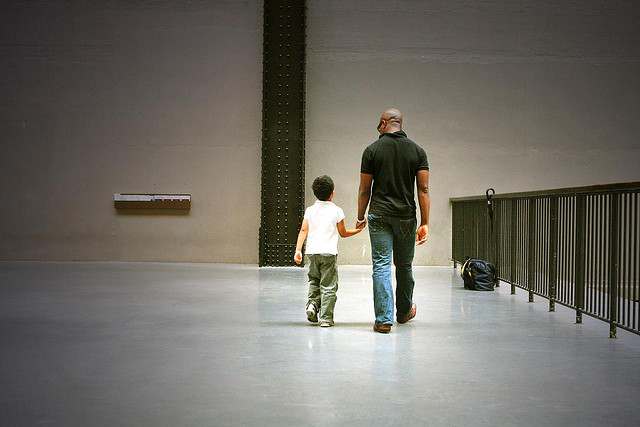When Parents Doubt Their Children
 The experience of self-doubt is perhaps one of the most compromising of all human emotions. Habitual doubt can lead to depression, anxiety, and even unhealthy relationships. In other words , the experience of doubt can easily make someone give up their most desired wishes leading to the experience of settling or relinquishing one’s dreams.
The experience of self-doubt is perhaps one of the most compromising of all human emotions. Habitual doubt can lead to depression, anxiety, and even unhealthy relationships. In other words , the experience of doubt can easily make someone give up their most desired wishes leading to the experience of settling or relinquishing one’s dreams.
So, where does the experience of doubt begin? Doubt is an internal representation that has to do with the early establishment of self. The concept of self is realized once a child has been able to psychologically see him or herself as a separate entity from their parents, especially mother initially. In most cases, by the time a child is between 14 and 20 months (toddlerhood), we see kids start to move away from the safety of mom and begin to venture into experiencing the world without the fears of stranger anxiety. This is typically a time of great excitement for the toddler and a mixed bag of feeling for the parents – excitement and also some fear of their child’s lack of concern. However, in this normal period of growth, the child has internalized that his or her world is safe as modeled by the combination of loving and soothing parent images along with a feeling of confidence and pride.
But, what happens when toddlers or children don’t separate or venture into the world of independence? How do we understand low self-confidence? What causes a child, adolescent, or adult to not feel empowered and self-reliant? The answer is self-doubt and it starts early.
Here’s how it works. Children from the earliest of ages idealize their parents. Idealize means that both boys and girls look directly to their parents in order to determine their own fate based on the fact that children are entirely dependent on their parents for survival beginning at birth. Therefore, a child will reference their own belief systems based on what they perceive from the adults who raise and protect them. Most parents don’t understand how their personal feelings and beliefs about their children’s transfer directly into their child’s sense of self through many means of communication.
Most small children seek to please their parents. They want them to be proud of them. They want to win their parent’s approval and belief that they are successful and strong. This is where early self-esteem begins. Fathers have a particularly important role here because both boys and girls use their father as a means to separate from the early dependence on the all powerful mother. Once again, this begins in toddlerhood and how the father conveys his beliefs in his children’s quest for independence, sets an early stage for both present and future self-esteem. For example, fathers who are loving, supportive, complementary, encouraging, and positive, tend to give their sons and daughters an early sense that they are strong, powerful, and successful for this is referenced in the mirror of their father. These internalizations then are the early building blocks for self-confidence not doubt. Children who feel empowered and successful are the ones who work harder and achieve more than children who feel doubtful and insecure.
So, remember that your belief in your child helps them believe in themselves paving the way to their feeling successful not doubtful.
______________________________________________________________
Dr. Keith Kanner is a Licensed and Board Certified Clinical Child, Adolescent, and Adult Psychologist and Psychoanalyst. In addition to a full-time private practice in Rancho Santa Fe, California, he is an Assistant Clinical Professor of Psychiatry in the School of Medicine at the University of California San Diego where he teaches both human development and also trains medical students how to better understand and relate to their patients. He also serves as the Director of Clinical Counseling for La Jolla Country Day School in La Jolla, California, and is a Clinical Professor at The San Diego Psychoanalytic Society and Institute. Dr. Kanner also sits on the National Board of Directors for Kids Korps USA, which is the largest organization in the country that teaches children and adolescents the importance of volunteering to help the community at large. As a father of three children, he is also a dedicated baseball, football, and soccer coach.










You must be logged in to post a comment Login